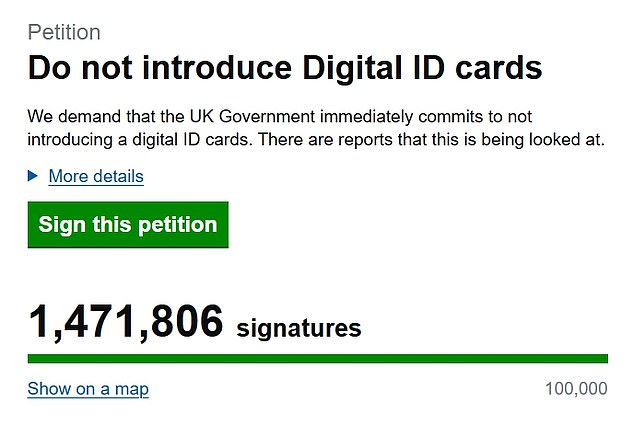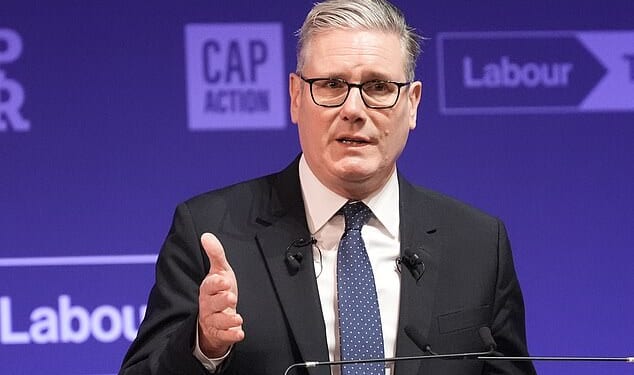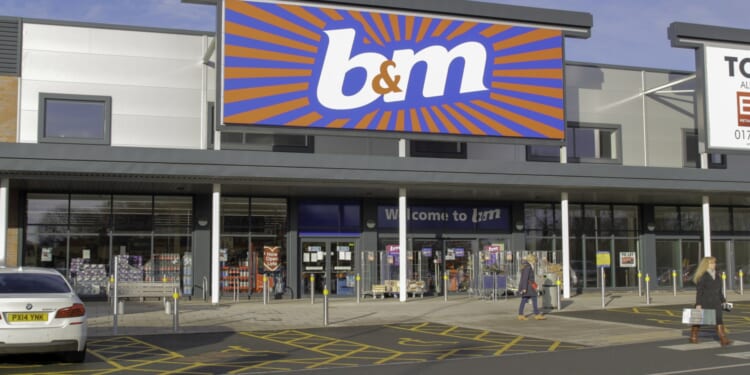Labour‘s new digital ID will form ‘the bedrock of the modern state’, one of the PM’s top aides said today as a petition against the policy passed 1.4 million signatures.
Anyone who works in the UK will need the ID as part of the Government’s bid to reduce illegal immigration. But Darren Jones, who is spearheading the policy as Chief Secretary to the PM, went further, suggesting it could have much wider uses in future.
Civil liberty campaigners have, however, railed against the plan, with the backlash growing.
Last night, a petition on the Parliament website titled ‘Do not introduce digital ID cards’ had more than 1.4million signatures.
Sir Keir Starmer said today the immigration system needed to be ‘fair’ as he made the case for digital IDs at a conference of progressive leaders.
‘Let me spell it out, you will not be able to work in the United Kingdom if you do not have digital ID,’ he said.
‘It’s as simple as that because decent, pragmatic, fair-minded people, they want us to tackle the issues that they see around them.’
Speaking at the same event, the Global Progress Action Summit in London, Mr Jones said the policy was the one thing he wanted to achieve in his Cabinet Office role.

Sir Keir Starmer said today that the immigration system needed to be ‘fair’ as he made the case for digital IDs at a conference of progressive leaders. ‘Let me spell it out, you will not be able to work in the United Kingdom if you do not have digital ID,’ he said
‘If we get this digital ID system working and the public being with us, that will be the bedrock of the modern state and will allow for really quite exciting public service reform in the future,’ he said.
Under the plans, all workers would store a digital ID on their smartphones which they can be asked to provide. It would be the authoritative proof of identity and residency status in the UK, and would include name, date of birth, and a photo as well as information on nationality and residency status.
However, shadow pensions secretary Helen Whately said the move would not prevent illegal working.
‘We’re hearing about people working in the grey economy [where jobs are hidden from the state] being paid in cash, being often paid well below the minimum wage,’ she told Sky News.
‘This is not about law-abiding employees failing to be able to identify whether people’s ID is legal or not, they’re not even checking ID.’
During his speech, Sir Keir said progressive politicians have been ‘squeamish’ about saying things that are ‘clearly true’.
‘For too many years, it’s been too easy for people to come here, slip into the shadow economy and remain here illegally because, frankly, we have been squeamish about saying things that are clearly true.’
The PM added: ‘It’s not compassionate Left-wing politics to rely on labour that exploits foreign workers and undercuts fair wages.’

A petition against the introduction of digital ID cards has surpassed 1 million signatures
But the ID card plan has been criticised by opposition parties and civil liberties campaigners who argue it is increasing the power of the state.
Reform UK called the plans a ‘cynical ploy’ designed to ‘fool’ voters into thinking something is being done about immigration.
Tory leader Kemi Badenoch also dismissed the plans as a ‘gimmick that will do nothing to stop the boats’.
The Liberal Democrats said they would fight ‘tooth and nail’ against the ‘nonsensical’ plans.
The move – previously rolled out and then halted by Tony Blair – was seized on by the former PM’s think-tank, who called for ministers to go further.
Alexander Iosad, from the Tony Blair Institute, said digital IDs should be the ‘gateway’ to showing people the state was on their side.
He said that while it was important to combat illegal migration and criminal gangs, the scheme should also be used to store information about a person centrally.
Mr Iosad added: ‘This is the moment of opportunity to deliver it – it must not be missed.’











